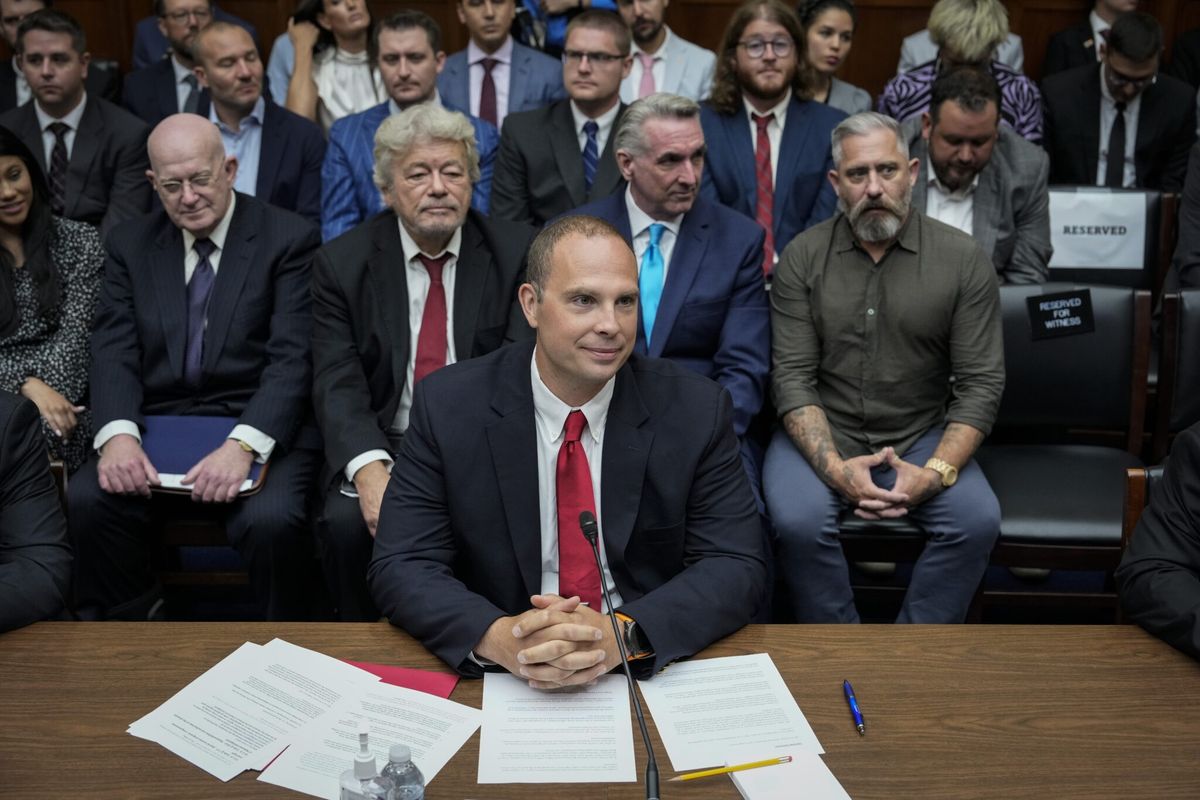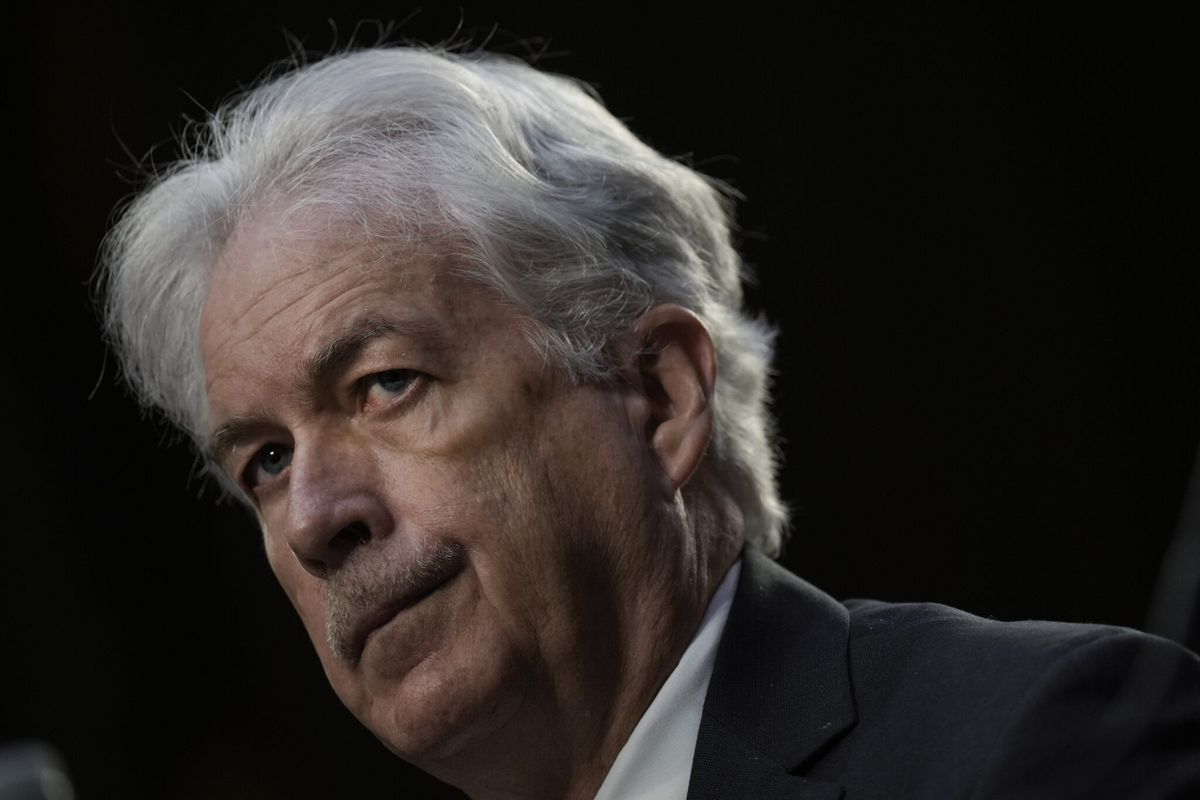OPINION — Two months ago, the Saudis took unprecedented public steps to show the Houthis (and the world) they were serious about ending their involvement in the Yemen war. The Saudi Ambassador to Yemen traveled to Sanaa to make peace with the Houthi leadership responsible for spouting virulent anti-Saudi propaganda and firing over 1,000 rockets, missiles, UAVs at the Kingdom. This visit was the culmination of years of mediated peace talks, and the result of Saudi weariness from bearing the heavy costs – in terms of national security, treasure, and public image – which they paid due to their involvement in Yemen’s civil war.
The Saudi-Houthi summit was off to a rocky start after the Houthis increased their demands at an event that was hoped to conclude with the signing of a truce. Now talks appear to have stalled and the cause is unmistakably Houthi intransigence. While those talks have not completely collapsed just yet, negotiations appear to be heading in that direction as the Houthi leadership has ended its brief hiatus from anti-Saudi rhetoric and threats. In the aftermath of failed Saudi-Houthi peace talks, Riyadh will need to recalculate its strategy in Yemen; and Crown Prince Mohammed bin Salman (MBS) will be faced with a strategic dilemma as he seeks to chart out Saudi Arabia’s next steps.
Option #1 is for the Saudis to disregard the failure of negotiations and opt for unilateral steps to withdraw from the war on the basis that it is in the interest of the Kingdom to extricate itself from the quagmire as soon as possible. The logic behind this is that the longer Riyadh remains a party to the conflict, the longer it bears the heavy costs for participating in a war it knows it cannot win. If it makes such a step contingent on the Houthis’ signing an agreement, it will essentially allow a critical decision for Saudi national security to be determined in Sanaa.
However, this option has numerous pitfalls and chief among them is the fact that the Houthis may refuse to recognize the unilateral Saudi withdrawal and continue to target the Saudis in an effort to extort them for “compensation for reconstruction.” Unilateral withdrawal would, in effect, be forfeiting the single “stick” that the Saudis hold in fending off Houthis interested in pressuring them to hand over as many “carrots” as possible.
This may present Riyadh an opportunity to gauge the seriousness of Iran’s commitment to halt activities that undermine Saudi sovereignty, as Tehran agreed to in a deal brokered by China. If Iran has abided by its commitment and cut off the precision guided munitions (PGMs) supply line to the Houthis, then the Saudis will see that any Houthi missile or UAV attacks will be launched sparingly and with weapons of inferior quality. In turn, the Houthis’ inability to send barrages that evade or swarm and overwhelm Saudi air defenses will make Saudi airspace far more defensible. But if it turns out that Iran did not uphold its end of the deal and China is unwilling or unable to enforce the agreement, Riyadh may be left to face dangerous enemy fire largely on its own.
Looking for a way to get ahead of the week in cyber and tech? Sign up for the Cyber Initiatives Group Sunday newsletter to quickly get up to speed on the biggest cyber and tech headlines and be ready for the week ahead. Sign up today.
Option #2 is for Saudi Arabia, as the party that made a good faith effort for peace, not to let the failed negotiations go to waste; that is, the Kingdom should use its newfound leverage and legitimacy in order to end the conflict on more favorable terms. While such a strategy will not provide the immediate gratification of a quick withdrawal, should efforts to improve long-term Saudi positioning fail then unilateral disengagement remains a viable last resort.
This would be a multi-stage approach that would initially require Riyadh to rewrite its list of strategic goals in engaging with the Houthis. Presumably they would include the following three items at the very top: preserving the security and integrity of Saudi Arabian territory and the Saudi-Yemeni border, protecting maritime traffic along Yemen’s coastal areas, and preventing major Houthi force buildup (in terms of quality and quantity of weapons). Rewriting Saudi’s strategic priorities for Yemen is an essential step for Riyadh as the initial war aim pronounced in 2015, eliminating the Iranian foothold (Houthis) from Yemen, is not realistic for the foreseeable future and therefore not practically useful in guiding the recalibration of Saudi strategy.
The Saudis should then make a public Saudi-Houthi peace proposal to serve as a basis for a realistic solution to a negotiated settlement between Riyadh and Sanaa. MBS should leave this on the table to show his ongoing commitment to end Saudi involvement in the war.
After taking these steps in coordination with its allies, Riyadh can expect far greater support from its strategic partners in the West. The Biden Administration would then have a much stronger case for bolstering Saudi defenses, in particular missile defense, and providing additional materiel to Saudi Arabia once it has demonstrated that it is a restrained, responsible, and constructive player in Yemen. Even U.S. assistance for surgical “offensive operations” would now appear far more justified when they target impending Houthi attacks or force buildup. While one could argue that Saudi Arabia would prefer to turn to its newfound partner in Beijing for help, Washington has clear advantages in terms of battle-tested tech, experience defending against Iranian-built weapons systems, and operational intelligence in the region. In particular, the recent experience of Washington’s Ukrainian allies in defending against hundreds of Iranian UAVs could be instructive for the Saudis.
In parallel to the kinetic activities guided by the revised Saudi strategy for Yemen, Riyadh should rally its partners to create “situations of strength” off the battlefield. They should work together to chip away at Houthi legitimacy by disseminating factual and compelling information to audiences inside and outside of Yemen regarding the dismal quality of life under the brutal Houthi regime. In parallel, they ought to redouble efforts to improve governance and services in coalition-controlled areas of Yemen. They can also work with Western partners to target the most dangerous of Houthi leaders by them (and their families) access to unexplained wealth abroad and designating them to cut them off from the global financial system. Finally, to shore up the coalition’s major weakness, Riyadh should take a pro-active role in advancing creative solutions to ensure STC-GOY military cohesion by addressing the long-term concerns of anti-Houthi coalition members.
The Cipher Brief hosts expert-level briefings on national security issues for Subscriber+Members that help provide context around today’s national security issues and what they mean for business. Upgrade your status to Subscriber+ today.
While these combined efforts will not yield results next week or next month, over time they may shift the balance and push the Houthis to question their current belief that time is on their side, and that they need not rush to strike a deal with the Saudi-led coalition. If decision-makers in Sanaa begin to wonder whether their prospects for an agreement will be worse in the future, they might be willing to conduct serious negotiations to reach an agreement with the Saudis. For Riyadh, it will be critical to use their new strategic priorities as a measuring stick for the success of their policies. If pursuing the latter option leads to a situation in which Riyadh once more finds itself being dragged back into the morass at unacceptable costs, then it could always revert to the former option of cutting and running.
The Saudis now have a compelling case that they have gone to great lengths to end their involvement in Yemen, and that the renewal of the conflict is being instigated by the radical Houthi leadership. While the enhanced legitimacy of the war effort may be of little consolation to MBS, who genuinely seeks to end the conflict, it may yet provide a number of opportunities to end Saudi involvement in Yemen on more favorable terms. Pushing ahead with the disengagement from Yemen regardless of the outcome of negotiations may appear to be the simplest, quickest, and cheapest solution to ending Saudi involvement in Yemen, but it is unlikely to convince the Houthis that it is in their interest to halt attacks on the Kingdom.
In practice, the strategy for tackling this dilemma need not be as dichotomous as presented in this brief article. For example, it is conceivable that Riyadh could initiate a piecemeal process to withdraw from Yemen while taking parallel steps to enhance its defense partnerships and leverage/capabilities vis-à-vis the Houthis. In depicting two possible paths forward on opposite ends of the spectrum, this article sought to convey the advantages of each, and how combining certain aspects of them into a flexible and modular approach could best serve Riyadh as it seeks to navigate the dynamic Yemeni theater.
The Cipher Brief is committed to publishing a range of perspectives on national security issues submitted by deeply experienced national security professionals.
Opinions expressed are those of the author and do not represent the views or opinions of The Cipher Brief.
Have a perspective to share based on your experience in the national security field? Send it to Editor@thecipherbrief.com for publication consideration.
Read more expert-driven national security insights, perspectives and analysis in The Cipher Brief because National Security is Everyone’s Business















